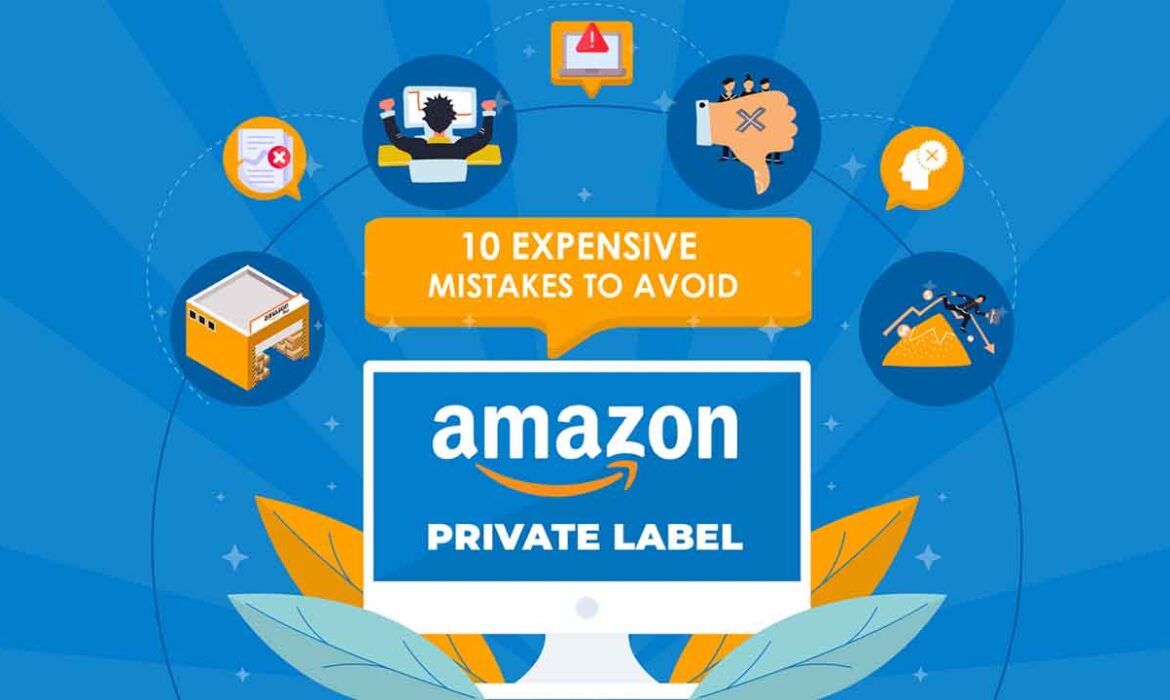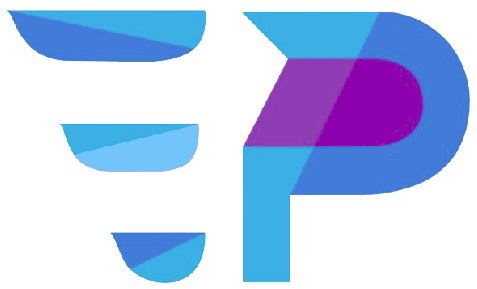
What is amazon private label?
Amazon Private Label is a program where Amazon sellers can create and sell their own brand of products on the Amazon marketplace. These products are manufactured by third-party manufacturers but are sold under the seller’s own brand name.
Amazon Private Label allows sellers to create their own unique products, set their own prices, and have more control over their business. It also allows sellers to compete with other established brands on the platform.
There are several benefits to using the Amazon Private Label program:
- Increased profitability: By creating and selling your own brand of products, you can increase your profit margins compared to reselling other brands.
- Branding and differentiation: By creating your own brand, you can differentiate yourself from other sellers and build a stronger relationship with your customers.
- Control over product development: With private labeling, you have the ability to design and develop your own products to meet the specific needs of your target market.
- Increased visibility: As a private label seller, you will have the opportunity to have your products featured in Amazon’s search results and on their product detail pages.
How does amazon’s private label work?
Amazon Private Label works by allowing sellers to create and sell their own brand of products on the Amazon marketplace. The process typically involves the following steps.
- Research: products and niches to find opportunities for private labeling.
- Finding a supplier: Find a manufacturer or supplier that can produce the products you want to sell under your own brand.
- Negotiating terms: Once you have found a supplier, you will need to negotiate terms such as price, minimum order quantity, and lead time.
- Branding and packaging: Develop your brand and create packaging for your products.
- Listing products: Create product listings for your private label products on Amazon and optimize them for search.
- Fulfillment: Once an order is placed, the supplier will ship the product directly to the customer.
- Customer service: Respond to customer inquiries and resolve any issues that may arise.
It’s worth noting that Amazon has its own private label program called Amazon Brand Registry, where Amazon itself will be the seller and manufacture the product under its own brand, as well as a program called Amazon Launchpad which helps startups and entrepreneurs to launch their own products, this way they can access Amazon’s customers and resources to grow their businesses.
Is amazon’s private label profitable?
Amazon Private Label can be a profitable business model for sellers, but it also depends on a variety of factors such as the product niche, the competition, and the cost of goods.
- High-demand products: If you can find a product that is in high demand, it increases your chances of making a profit.
- Low competition: If there is low competition in your product niche, it’s easier to establish your brand and gain visibility.
- Low cost of goods: By keeping your cost of goods low, you can increase your profit margins.
- Right pricing: Setting the right price for your product can help you be profitable, it’s important to consider the cost of goods, competition, and market trends.
- Branding and marketing: Building a strong brand and effectively marketing your products can help increase sales and profitability.
Overall, private labeling can be a profitable business model for Amazon sellers, but it requires a significant amount of research, planning, and investment to be successful. It’s important to understand that it’s not a get-rich-quick scheme, it takes time, effort, and patience to see results.
What are the requirements for amazon private label?

- Amazon seller account: To sell on Amazon, you will need to have an Amazon seller account, which allows you to list and sell products on the platform.
- Product Sourcing: You will need to find a supplier that can produce the products you want to sell under your own brand.
- Branding and packaging: You will need to develop your brand and create packaging for your products.
- Product listings: You will need to create product listings for your private label products on Amazon and optimize them for search.
- Fulfillment: You will need to arrange for the fulfillment of your products, which can be done through Amazon’s Fulfillment by Amazon (FBA) program or through a third-party logistics provider.
- Compliance: You need to ensure that your products meet all relevant safety, labeling, and packaging requirements for the countries where you plan to sell.
- Brand protection: You will need to register your brand with Amazon Brand Registry in order to protect your products from infringements and counterfeiting.
- Business registration: Depending on your location, you may need to register your business and obtain any required licenses or permits.
It is important to note that Amazon has its own policies and guidelines that sellers must follow, so it is important to review and understand them before starting a private label business on Amazon.
What is the cost for an amazon private label?
The cost to launch a private label product on Amazon can vary depending on a number of factors, including the type of product, the manufacturer you choose to work with, and the level of branding and packaging you desire. Some costs to consider include:
Product development and prototyping
Product development is the process of creating a new product or improving an existing one. This can include researching customer needs, designing and testing prototypes, and refining the final product. Prototyping is an important part of product development, as it allows for testing and iteration of design ideas before committing to mass production.
If you’re starting from scratch and developing your own product, you’ll need to invest in product development and prototyping. This can include costs for design, materials, and testing.
Manufacturing
Manufacturing is the process of converting raw materials into finished goods through the use of tools, machinery, and labor. This can include assembling component parts, applying finishes, and packaging products for distribution. Manufacturing can take place on a small scale, such as in a workshop, or on a large scale in a factory. Different types of manufacturing include assembly line manufacturing, mass production, and flexible manufacturing.
Once you have a prototype, you’ll need to find a manufacturer to produce your product. The cost of manufacturing can vary greatly depending on the type of product, the quantity you order, and the manufacturer you choose.
Branding and packaging
To create a professional-looking product, you’ll need to invest in branding and packaging. This can include costs for design, printing, and materials.
Proper branding and packaging can help differentiate your product from competitors and make it more attractive to customers.
Some costs associated with branding and packaging include:
- Design: You’ll need to invest in the design of your product packaging and branding elements, such as logos, labels, and packaging graphics. This can include costs for hiring a graphic designer or a design agency.
- Printing: Once you have your design, you’ll need to print the packaging materials and labels. This can include costs for printing, die-cutting, and finishing.
- Materials: The materials you choose for your packaging will also affect the cost. For example, using a more premium material like glass or metal can be more expensive than using plastic.
Inventory and fulfillment
Managing inventory and fulfillment effectively is crucial for the success of any e-commerce business (such as eCommerce Planners), as it ensures that products are always available for purchase and that customers receive their orders in a timely and efficient manner.
You’ll need to purchase inventory and handle the logistics of getting the product to Amazon’s warehouses. The cost of inventory will depend on the quantity you order and the cost of the product and the cost of fulfillment will depend on the size and weight of the product and the location of the warehouse.
Amazon Private Label Revenue
Amazon’s private label business, which includes a wide range of products under its own brand, has been growing in recent years. The company has been expanding its private label offerings in categories such as clothing, home goods, and grocery items.
As of 2021, it is estimated that Amazon’s private label revenue was around $8 billion, although the company does not disclose official figures. This represents a significant portion of Amazon’s overall retail sales, and the company is expected to continue investing in its private label business in the future.
It should be noted that the private label revenue is a small fraction of Amazon’s total revenue, which was $386 billion in 2020.
How To Sell On Amazon?
It is important to note that to sell on Amazon, you’ll need to have an Amazon Seller account, and also to be aware of Amazon’s policies and regulations, such as the Amazon Brand Registry.
In addition, you’ll need to be prepared to invest time and money in product development, marketing, and customer service to be successful.
Keep in mind that private labeling can be very competitive, so it is important to stay on top of trends and customer needs to stay ahead of the competition.
Are You Ready To Launch Private Label Products?
Launching a private-label product on Amazon requires a significant amount of research, planning, and execution. You need to identify a profitable niche, find a reliable supplier, create a brand and packaging, create a listing, and market your product.
Before launching a private label product, it is important to conduct thorough market research to identify a profitable niche, competition, and customer needs. It’s also important to understand Amazon’s policies and regulations and to have a well-executed plan in place.
Keep in mind that launching a private-label product on Amazon is not easy, and it requires a lot of hard work and investment. It’s important to be prepared to invest time and money in product development, marketing, and customer service to be successful.
If you are ready to launch a private label product on Amazon, it is important to have a clear understanding of the steps and resources required, as well as to be prepared for the challenges that you may face along the way.
Happy reading!


